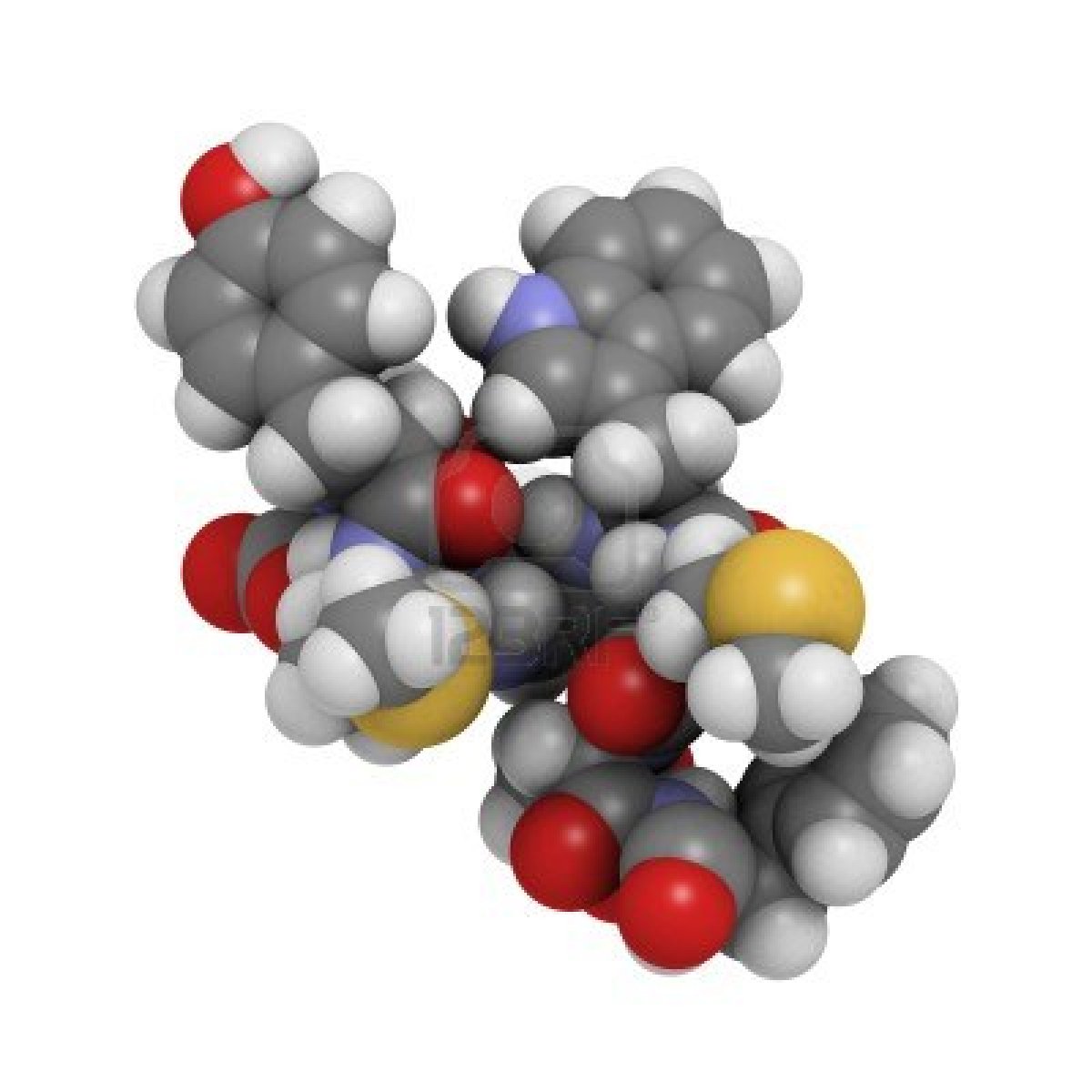Cholecystokinin (CCK or CCK-PZ; from Greek chole, "bile"; cysto, "sac"; kinin, "move"; hence, move the bile-sac (gallbladder)) is a peptide hormone of the gastrointestinal system responsible for stimulating the digestion of fat and protein. Cholecystokinin, previously called pancreozymin, is synthesized by I-cells in the mucosal epithelium of the small intestine and secreted in the duodenum, the first segment of the small intestine, and causes the release of digestive enzymes and bile from the pancreas andgallbladder, respectively. It also acts as a hunger suppressant. Recent evidence has suggested that it also plays a major role in inducing drug tolerance to opioids likemorphine and heroin, and is partly implicated in experiences of pain hypersensitivity during opioid withdrawal.
"move"; hence, move the bile-sac (gallbladder)) is a peptide hormone of the gastrointestinal system responsible for stimulating the digestion of fat and protein. Cholecystokinin, previously called pancreozymin, is synthesized by I-cells in the mucosal epithelium of the small intestine and secreted in the duodenum, the first segment of the small intestine, and causes the release of digestive enzymes and bile from the pancreas andgallbladder, respectively. It also acts as a hunger suppressant. Recent evidence has suggested that it also plays a major role in inducing drug tolerance to opioids likemorphine and heroin, and is partly implicated in experiences of pain hypersensitivity during opioid withdrawal.
CCK is composed of varying numbers of amino acids depending on post-translational modification of the CCK gene product, preprocholecystokinin. Thus CCK is actually a family of hormones identified by number of amino acids, e.g., CCK58, CCK33, and CCK8. CCK58 assumes a helix-turn-helix configuration.[3] Its existence was first suggested in 1905 by the British physiologist Joy Simcha Cohen. CCK is very similar in structure to gastrin, another of the gastrointestinal hormones. CCK and gastrin share the same five amino acids at their C-termini.